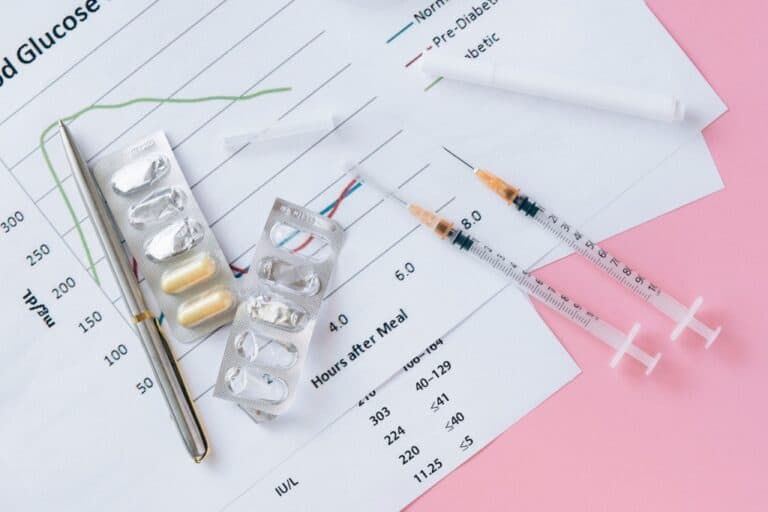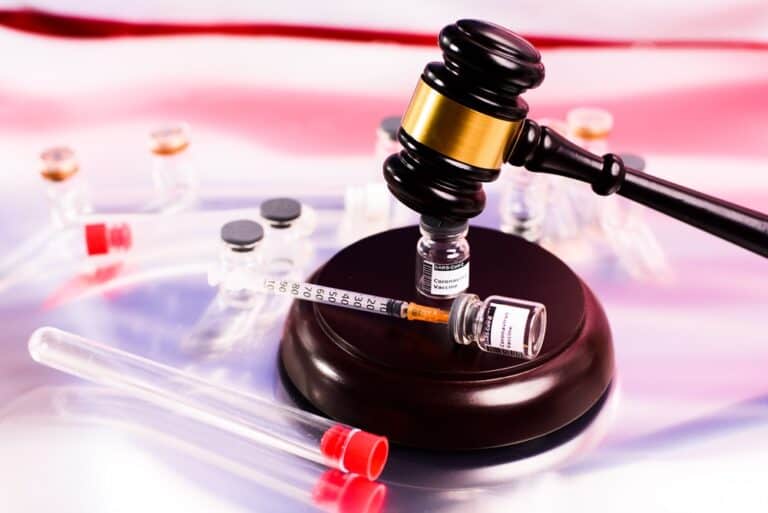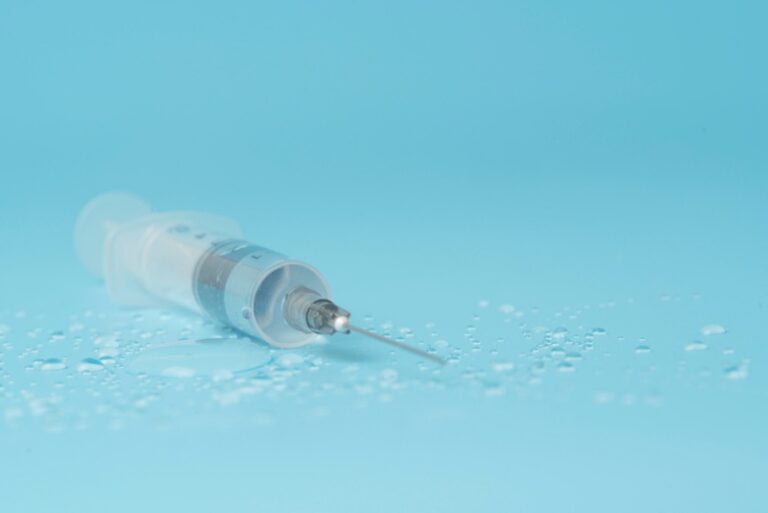Is Anavar Liver Toxic? (Oxandrolone Hepatotoxicity Guide)
Max Health Living is a reader-supported site. Purchases made through links may earn a commission. Learn more.
With its numerous benefits in the medical industry and to athletes, the question of whether Anavar is liver toxic has been a topic of concern among users. While some individuals believe that this steroid is safe and poses no harm to the liver, others argue that it can cause severe damage to this vital organ.
Anavar, also known by its generic name Oxandrolone, is a synthetic anabolic steroid that has been used for medical treatments since the 1960s. It is commonly used to treat muscle-wasting diseases and to help patients gain weight after surgery or a severe injury.
While Anavar is generally considered to be a relatively safe drug, it can still have some adverse effects on the liver.
In this article, we will delve into the science behind Anavar’s effects on the liver and explore the various factors that determine its level of toxicity.
Key Highlights:
- Anavar is liver toxic due to its synthetic steroid nature, and high doses can lead to liver damage and other side effects.
- Anavar can also increase bad cholesterol levels and decrease the body’s ability to process toxins, leading to an increased risk of kidney damage.
- Anavar is hepatotoxic due to its 17-alpha-alkylation, which allows it to pass through the liver without being metabolized.
- All oral steroids can damage the liver.
==> Order Anavar for the BEST price here. (non-liver damage steroid)
Keep reading to learn how to protect your liver during Anavar or any anabolic steroid cycle.
The liver is responsible for breaking down and metabolizing drugs, and Anavar is no exception. In fact, because it is a synthetic steroid, it can be particularly taxing on the liver. High doses of Anavar can lead to an increased risk of extreme liver toxicity, as well as other side effects such as increased cholesterol levels, hair loss, and acne.
You know, anabolic steroids are metabolized by the liver: This process can lead to an increase in liver enzymes, which can be toxic to the liver and kidneys.
Additionally, Anavar can increase the production of bad cholesterol, which can lead to an increased risk of cardiovascular disease. Furthermore, Anavar can cause a decrease in the body’s ability to process toxins, which can lead to an increased risk of kidney damage.
Anavar is known to be hepatotoxic due to its 17-alpha-alkylation. This modification allows the drug to pass through the liver without being metabolized, which can lead to an increase in liver enzymes and potential liver damage. It is important to monitor liver function while taking Anavar and to avoid using it for extended periods of time.
Anavar is metabolized by the liver and excreted by the kidneys.
As a result, both organs can be affected by the use of this steroid. Anavar can cause an increase in liver enzymes, which is an indication of liver damage. This can be a sign that the liver is working harder than usual to break down and eliminate the steroid from the body.
The kidneys can also be affected by Anavar use. The drug can cause an increase in kidney markers, which is an indication that the kidneys are working harder than usual to eliminate the steroid from the body. This can lead to an increased risk of kidney damage. In some cases, Anavar can cause kidney failure, which is a serious and potentially life-threatening condition.
It is important to note that the extent of liver and kidney damage caused by Anavar use can vary depending on a number of factors, such as the dosage and duration of use, as well as the individual’s overall health and medical history.
It is important to monitor liver and kidney function while taking Anavar and to avoid using it for extended periods of time. If you experience any symptoms of liver or kidney damage, such as abdominal pain, nausea, or swelling, you should seek medical attention immediately.
Which Other steroids damage your liver?
All oral steroids, including popular anabolic steroids such as Dianabol, Winstrol, Anadrol, Anavar, and Halotestin, can potentially damage the liver. When these steroids are taken orally, they are absorbed into the bloodstream and transported to the liver for processing.
The liver is responsible for breaking down and metabolizing these steroids, and this process can be taxing on the liver.
Oral steroids are often modified with a 17-alpha-alkylation, which allows them to pass through the liver without being broken down. This modification can increase the risk of liver toxicity, as the steroids can accumulate in the liver and cause damage over time.
In addition to liver damage, oral steroids can also cause other side effects such as acne, hair loss, and increased cholesterol levels. It is important to monitor liver function while taking oral steroids and to avoid using them for extended periods of time. If you experience any symptoms of liver damage, such as abdominal pain, nausea, or yellowing of the skin or eyes, you should seek medical attention immediately.
It is worth noting that injectable steroids are generally considered to be less toxic to the liver than oral steroids.
This is because injectable steroids do not have to pass through the liver for processing, and are instead metabolized by the body’s tissues.
However, injectable steroids can still cause liver damage if used improperly or in high doses. Other steroids that can damage the liver include Trenbolone, Deca-Durabolin, and Equipoise.
How do you protect your liver during a steroid cycle?
You can do the following to protect your liver during Anavar or any steroid cycle:
- Limiting alcohol consumption: Alcohol is known to be toxic to the liver, and when combined with steroids, it can increase the risk of liver damage. Limiting alcohol consumption can help reduce the strain on the liver and prevent further damage. You can read my article on the effects of Anavar and alcohol combination.
- Eating a balanced diet: A healthy diet can help support liver function and reduce the risk of liver damage. A diet rich in fruits, vegetables, lean proteins, and whole grains can help provide the nutrients the liver needs to function properly.
- Avoiding contact with toxins and hazardous materials: Exposure to toxins and hazardous materials can increase the risk of liver damage. Avoiding exposure to chemicals, solvents, and other harmful substances can help protect the liver.
- Exercising regularly: Regular exercise can help improve liver function and reduce the risk of liver damage. Exercise helps improve blood flow to the liver, which can help improve liver function.
- Getting regular check-ups to monitor liver health: Regular check-ups can help detect liver damage early and prevent further damage. Blood tests can be used to monitor liver function and detect any abnormalities.
- Taking steps to prevent the spread of infectious diseases, such as hepatitis: Viral infections such as hepatitis can cause liver damage. Taking steps to prevent the spread of these infections, such as getting vaccinated and practicing safe sex, can help reduce the risk of liver damage.
- Taking supplements like Glutathione, Liver Protect, and Citrus Bergamot: Certain supplements can help support liver function and reduce the risk of liver damage. Glutathione is an antioxidant that helps protect the liver from damage. Liver Protect is a blend of herbs and nutrients that help support liver function. Citrus Bergamot is a natural supplement that can help reduce cholesterol levels, which can help reduce the risk of liver damage.
Important Disclaimer: The information contained on MAX HEALTH LIVING is intended for informational and educational purposes only. Any statements made on this website have not been evaluated by the FDA and any information or products discussed are not intended to diagnose, cure, treat, or prevent any disease or illness. Please consult a healthcare practitioner before making changes to your diet or taking supplements that may interfere with medications.
Who We Are

We are a team of fitness, health, and supplement experts, and content creators. Over the past 4 years, we have spent over 123,000 hours researching food supplements, meal shakes, weight loss, and healthy living. Our aim is to educate people about their effects, benefits, and how to achieve a maximum healthy lifestyle. Read more.










